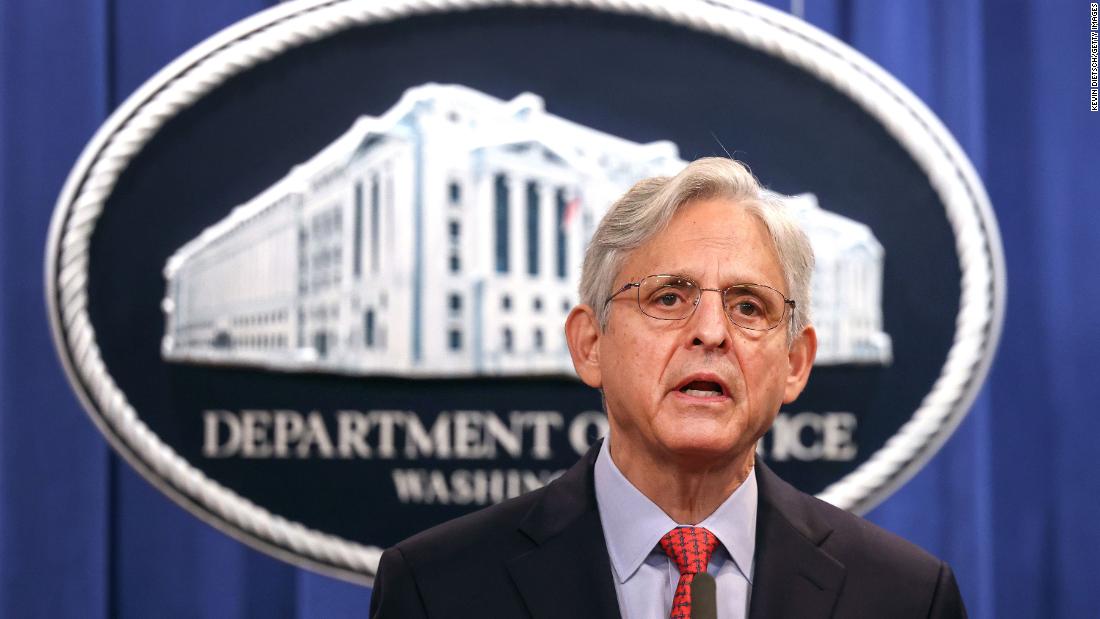Garland to tout DOJ’s work on Jan. 6 investigation and voting rights in testimony to House
“That there not be one rule for Democrats and another for Republicans; one rule for friends, another for foes; one rule for the rich and another for the poor; or different rules depending on one’s race or ethnicity,” Garland’s opening statement says.
In addition to the Bannon contempt referral, lawmakers may seek to question Garland about the department’s broader response to the Capitol attack, as it has charged more than 600 people who allegedly participated in the mob.
Garland’s opening statement calls the Capitol breach an “intolerable assault, not only on the Capitol and the brave law enforcement personnel who sought to protect it, but also on a fundamental element of our democracy: the peaceful transfer of power.”
“I have great confidence in the prosecutors who are undertaking these cases. They are doing exactly what they are expected to do: make careful determinations about the facts and the applicable law in each individual case,” the statement reads.
Committee Chairman Jerry Nadler, according to excerpts of his prepared opening statement shared with CNN, will commend the department “for doing the important work of bringing those responsible for the violence of January 6 to justice.”
“I ask only that you continue to follow the facts and the law where they lead — because although you have rightly brought hundreds of charges against those who physically trespassed in the Capitol, the evidence suggests that you will soon have some hard decisions to make about those who organized and incited the attack in the first place,” the New York Democrat will say.
As both the congressional and Justice Department investigations into the Capitol breach roll along, Republicans have sought to focus attention on DOJ’s handling of antifa-related violence, which some GOP lawmakers have equated to the attack on Congress’s election certification vote. They’ve also critiqued legal guidance put out by the department related to restrictive state election rules.
Garland’s prepared opening statement lays out the work the department has done “reinvigorating civil rights enforcement” as he highlights the department’s focus on voting rights in particular — a subject that could cause a clash with the committee’s Republicans who have defended restrictive election laws that have been passed recently by states.
“We are scrutinizing new laws that seek to curb voter access, and where we see violations, we will not hesitate to act,” Garland’s prepared opening statement says. “We are also scrutinizing current laws and practices to determine whether they discriminate against Black voters and other voters of color.”
Garland, a former appellate judge, has in the past pledged his commitment to keep partisanship out of the department’s decisions.
“I have grown pretty immune to any kind of pressure, other than the pressure to do what I think is the right thing, given the facts and the law,” Garland said during his February Senate confirmation hearing. “That is what I intend to do as the attorney general, I don’t care who pressures me in whatever direction.”
![]()


